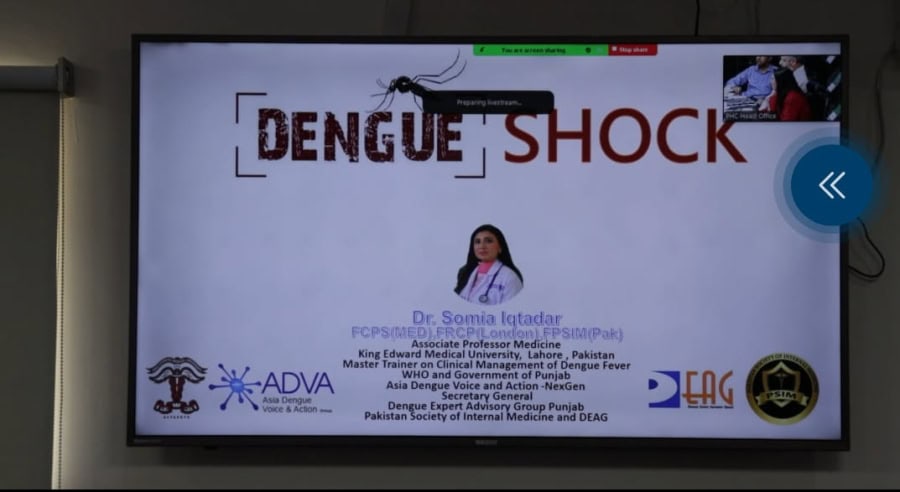LAHORE – Mosquitoes are responsible for spreading some of the deadliest diseases known to humanity, and dengue is the fastest-growing tropical disease, which afflicted 11 million people and caused around 7,000 deaths globally, whereas it is prevalent in 84 countries, and Brazil has the highest 9 million patients.
Deaths and complications from dengue can be prevented through early diagnosis and treatment by appropriately qualified medics, alongside effective clinical management of patients. Achieving the goal of zero dengue deaths requires a comprehensive understanding, training, and consistency in managing dengue patients across all hospital departments, including general practitioners, hospital doctors, and nurses from dengue wards and high-dependency units (HDUs).
This was highlighted by healthcare professionals during a specialised online training session, jointly conducted by the Punjab Healthcare Commission (PHC) and the Dengue Expert Advisory Group (DEAG) at the PHC head office on Wednesday.
The training, moderated by Additional Director PHC Dr Farooq Ahmed Adeel, aimed to optimise the clinical management of dengue fever, focusing on ‘Clinical Management of Dengue Patients and Referral Protocols’. Additional secretaries (Technical) of both health departments Dr Hafiz Muhammad Waseem and Dr Muhammad Younas, Director General (Health Services) Dr Muhammad Ilyas Gondal, Director (CDC) Dr Yadullah and others were also present.
The session was viewed by over 3,000 healthcare providers on PHC’s YouTube channel, and was led by distinguished experts, who provided guidance on various stages of dengue fever, equipping medics with critical insights and data to ensure successful patient outcomes.
Chairperson DEAG and Principal Sahiwal Medical College Prof Dr Imran Hassan Khan provided an overview of dengue fever, including its clinical features, precautions, and symptoms at different stages. General Secretary DEAG and Associate Professor King Edward Medical University Dr Somia Iqtedar delivered a detailed presentation on the ‘Management of Dengue Shock’. She emphasised the necessity of treatment by qualified physicians and highlighted best practices for managing the disease. Professor of Medicine Rawalpindi Medical University Dr Muhammad Khurram discussed clinical management scenarios of dengue. Vice-Chancellor RMU Prof Muhammad Umer concluded the training by discussing the roles of institutions and DEAG regarding dengue diagnosis and treatment.
Chief Executive Officer PHC Dr Muhammad Saqib Aziz, in his vote of thanks, stated that the PHC and DEAG collaborated for the training as part of a commitment to improve the quality and safety of healthcare services, using innovation and partnerships. While expressing gratitude to the DEAG experts and attendees, he said that this pioneering effort demonstrated an unwavering pledge to enhance the professional competence of healthcare providers. “The online format of the event ensured maximum participation from healthcare providers, advancing a shared agenda to combat the dengue fever pandemic,” he added.










